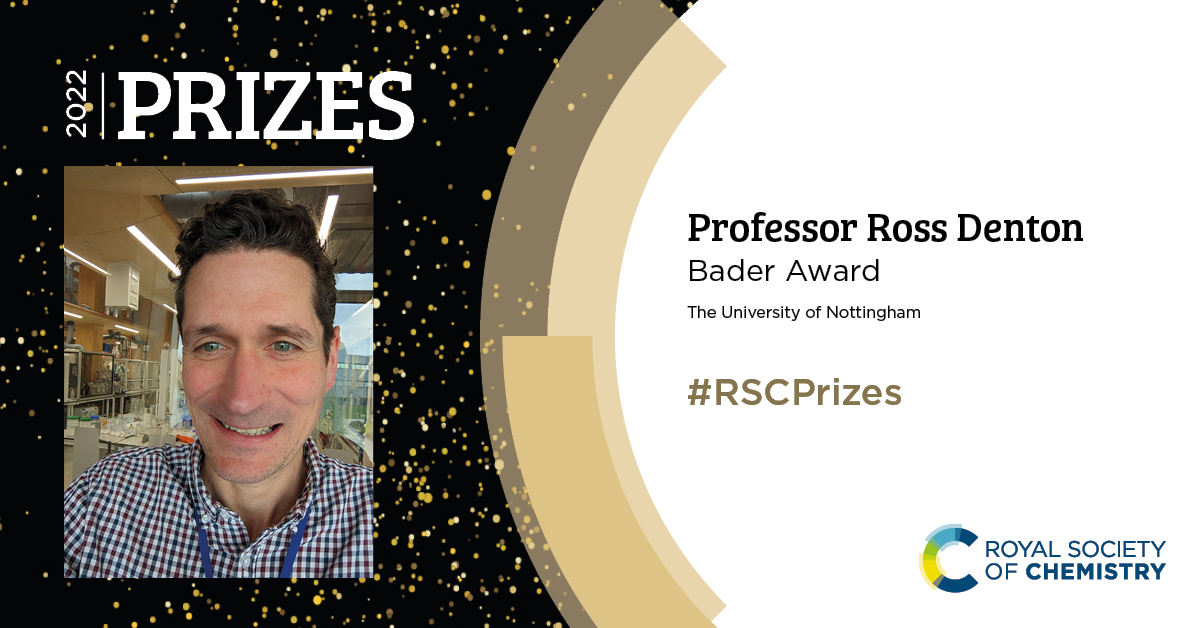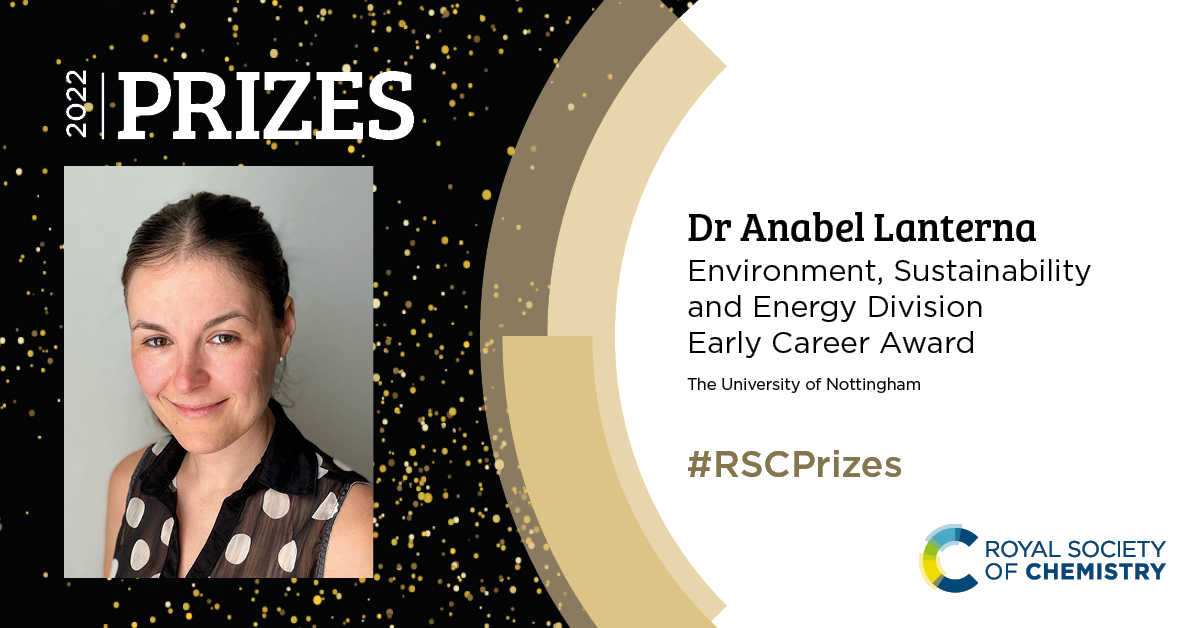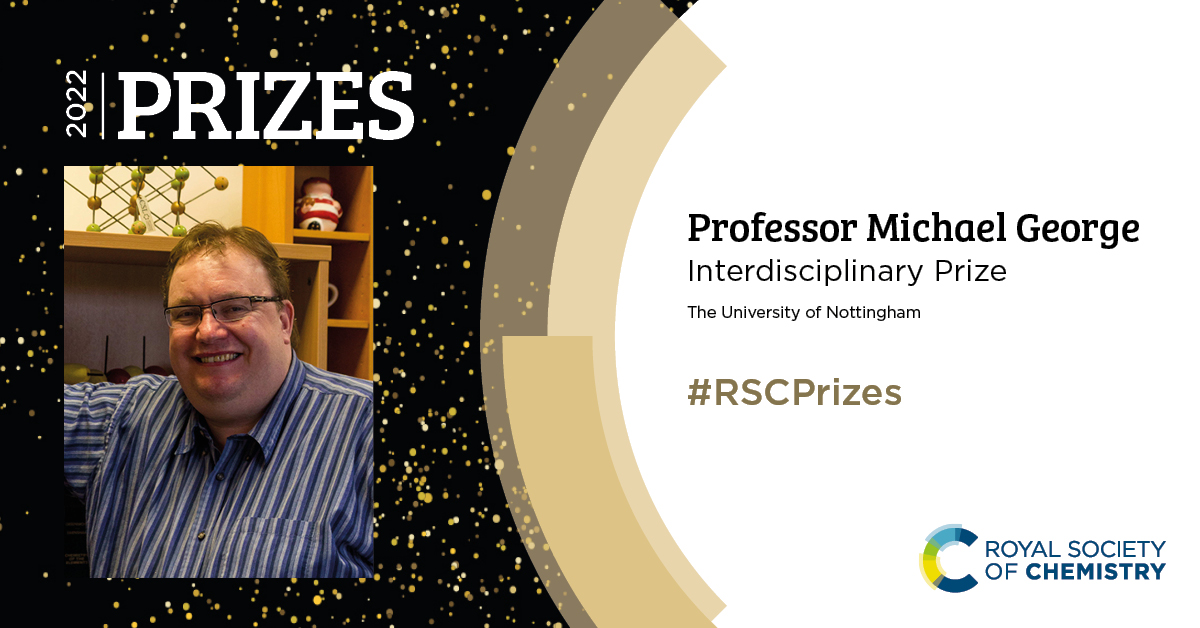Tuesday, 07 June 2022
Scientists from the University of Nottingham have been recognised for their innovative research in sustainable chemistry with prizes from the Royal Society of Chemistry.
The Royal Society of Chemistry’s prizes have recognised excellence in the chemical sciences for more than 150 years. In 2019, the organisation announced the biggest overhaul of this portfolio in its history, designed to better reflect modern scientific work and culture. The winners join a prestigious list of past-winners in the RSC’s prize portfolio, of which 50 individuals have gone on to win Nobel Prizes for their work, including 2016 Nobel laureates Jean-Pierre Sauvage, Fraser Stoddart and Ben Feringa.
 Professor Ross Denton
Professor Ross Denton
Professor Ross Denton has been named winner of the Royal Society of Chemistry’s Bader Award for the development of novel synthesis methods and catalysts based on organophosphorus and organosilicon chemistry, and their application in the synthesis of pharmaceuticals and natural products. The Bader Award recognises eminence in organic chemistry.
Professor Denton said: “Surprised and very happy to see the efforts of my group (who do all the work) rewarded.”
The long-term goal of Professor Denton’s research group is to change the way that scientists make the chemicals that we rely upon everyday such as medicines and agrochemicals. At present they are made from petrol-derived feedstocks and the chemical methods used in their production are not sustainable. Professor Denton’s group develops new chemical processes that eliminate hazardous chemicals and make use of renewable feedstocks. They then demonstrate these methods by using them to synthesise valuable molecules such as natural products and World Health Organisation essential medicines.
 Dr Annabel Lanterna
Dr Annabel Lanterna
Dr Anabel Lanterna has been named winner of the Royal Society of Chemistry’s Environment, Sustainability and Energy Division Early Career Award for innovative research on heterogeneous photocatalysis, pushing boundaries towards less expensive, light-responsive, reusable catalytic processes for sustainable chemistry. The Environment, Sustainability & Energy Division Early Career Award is for the most meritorious contributions made by an early career scientist in the area of environment, sustainability and energy.
After receiving the prize, Dr Lanterna said: “I feel greatly honoured to be the recipient of the 2022 Environment, Sustainability and Energy Division Early Career Award. Chemists can contribute to make our world a better place for everyone. This recognition provides me a further impetus to continue to use our knowledge to provide solutions to some of the most pressing problems facing the world today.”
Dr Lanterna’s research group focuses on the design materials that can harness the power of light to produce valuable chemicals under ecologically and economically sustainable conditions. In particular, the group explores the use of earth-abundant elements, together with sunlight, to trigger important chemical reactions. The work could lead to improving the manufacturing processes of many goods we use in our daily life – food preservatives, paints, cosmetics, and pharmaceuticals, for example – reducing not only their cost but also their environmental footprint.
 Professor Michael George
Professor Michael George
Professor Michael George has been named winner of the Royal Society of Chemistry’s Interdisciplinary Prize for pioneering innovations in flow chemistry, reactor engineering and reaction monitoring for continuous chemical processing. The Interdisciplinary Prizes are awarded for work at the interface between chemistry and other disciplines.
Professor George said: “I am absolutely delighted that the interdisciplinary work of our team has been recognised.”
A unifying theme in Mike’s research is combining photochemistry and spectroscopy to understand and drive chemistry probing reactivity, structure and function as well as developing new processes in three areas: (1) photochemistry and mechanisms of organometallic and coordination compounds; (2) spectroscopic and instrument development, and (3) green and sustainable chemistry. These areas overlap but the latter particularly focuses on how to efficiently convert raw materials to produce less waste and pollution and his group is addressing the challenges of using continuous photochemistry, electrosynthesis and thermal chemistry could transform how fine chemicals, agrochemicals and pharmaceuticals are manufactured.
Great science changes the way we think about things – either through the techniques used, the findings themselves, the products that emerge or even in how we interact with the world and those around us. Importantly, it also allows us to reflect on the incredible people involved in this work and how they have achieved their results. The work of the three Research & Innovation Prize winners from Nottingham University is a fantastic example of why we celebrate great science, and we’re very proud to recognise their contribution today.
For more information about the RSC’s revised prizes portfolio, visit rsc.li/prizes.
Story credits
More information is available from Jane Icke, Media Relations Manager for the Faculty of Science at the University of Nottingham on jane.icke@nottingham.ac.uk
Notes to editors:
About the University of Nottingham
Ranked 97 in the world and 17th in the UK by the QS World University Rankings, the University of Nottingham is a founding member of Russell Group of research-intensive universities. Studying at the University of Nottingham is a life-changing experience, and we pride ourselves on unlocking the potential of our students. We have a pioneering spirit, expressed in the vision of our founder Sir Jesse Boot, which has seen us lead the way in establishing campuses in China and Malaysia - part of a globally connected network of education, research and industrial engagement.
Nottingham was crowned Sports University of the Year by The Times and Sunday Times Good University Guide 2024 – the third time it has been given the honour since 2018 – and by the Daily Mail University Guide 2024.
The university is among the best universities in the UK for the strength of our research, positioned seventh for research power in the UK according to REF 2021. The birthplace of discoveries such as MRI and ibuprofen, our innovations transform lives and tackle global problems such as sustainable food supplies, ending modern slavery, developing greener transport, and reducing reliance on fossil fuels.
The university is a major employer and industry partner - locally and globally - and our graduates are the third most targeted by the UK's top employers, according to The Graduate Market in 2024 report by High Fliers Research.
We lead the Universities for Nottingham initiative, in partnership with Nottingham Trent University, a pioneering collaboration between the city’s two world-class institutions to improve levels of prosperity, opportunity, sustainability, health and wellbeing for residents in the city and region we are proud to call home.
More news…